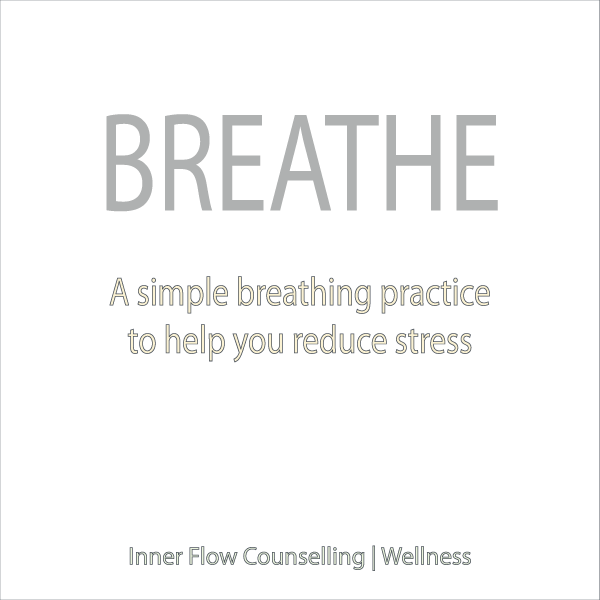
Breathing to Reduce Stress
Breathing is unique in that it is both an involuntary bodily process as well as a voluntary process. You can consciously bring your attention to your breath and have a direct affect on your physical, mental and emotional states.
Breath awareness has been called ‘Brain Hygiene’ by renowned neuroscientist Dan Siegel. The practice of focusing your attention through breath facilitates neuro-integration which directly affects how your brain regulates your body and impacts emotional balance, fear extinction, flexibility, empathy, morality, and intuition.
To begin set aside time everyday to practice; just a few minutes a day will allow you to become familiar with the process. As you build up familiarity you will naturally utilize it during stressful situations. Eventually integrating breath as a tool to help you find balance throughout your day.
Full Belly Breathing / Diaphragmatic Breath
When a stressor is presented use this technique to help you quickly and effectively reduce your symptoms. Full belly breathing activates your parasympathetic nervous system which is responsible for regulating your internal environment. It brings you back to a balanced and calm state.
- Sit, stand or lay with a long and comfortable spine.
- Gently place a hand on your belly around your navel.
- Breathe into your belly, your hand should raise and your belly should distend out. Like filling up a water jug, fill your body with air from the belly up to your lungs.
- As you exhale let the air leave your lungs first and your belly last. Your hand will fall with your belly on the exhale.
- Notice when your attention has left your breath and has gone to thinking, planning, daydreaming, worrying, remembering , or feeling discomfort in your body. Simply note this and gently bring yourself back to your breath.
Your mind will wonder often at the beginning. Overtime this practice will become easier, you will develop a greater capacity to stay with your breath and your body as the connections in your brain are reinforced.
If you are experiencing difficulty or cannot get your breath into your belly simply start where you can. Breathe as deep as you can and continue to practice bringing your breath lower and lower, never forcing it. Learning to breathe fully takes time; your diaphragm is a muscle and like any muscle it requires repetition and duration to build strength and expand.
